“18 If the world hate you, ye know that it hated me before it hated you.
19 If ye were of the world, the world would love his own: but because ye are not of the world, but I have chosen you out of the world, therefore the world hateth you.”
― The Gospel of John 15:18-19 KJV
The Wolves Within is a must-read for every believer who refuses to be deceived.
Hit the Tip Jar and help spread the message!
This post contains affiliate links, which means I may receive a commission or affiliate fee for purchases made through these links.
Unlock the mysteries of Biblical cosmology and enrich your faith with some of the top rated Christian reads at BooksOnline.club.
Click the image below and be sure to use promo code SCIPIO for 10% off your order at HeavensHarvest.com: your one stop shop for emergency food, heirloom seeds and survival supplies.
Related Entries
In America today, Martin Luther King Jr. is not just a hero: he is a cultural icon, perhaps the quintessential symbol of progressivism in the twentieth century.
His image is enshrined on murals, stamps, and monuments; holidays are celebrated in his honor, and his words are quoted ad nauseam. From the left to the right, from secular humanists to devout Christians, King is celebrated as a beacon of hope, a visionary leader: a martyr for justice. His legacy is etched into the American consciousness as a saint-like figure — so revered that his very name is invoked to sanctify movements that claim his mantle. Yet, when we peel back the layers of the MLK mythos, it becomes apparent that much of what is known about him is curated — carefully shaped by decades of myth-making and public relations.
What if the image we have of King is nothing more than an illusion — a convenient fabrication that bears little resemblance to the man behind the myth? Is MLK a hero, a huckster, or a heretic? We must dig deep into the details, beyond the platitudes, beyond the idealized speeches, and into the shadows of this man’s life.
What we uncover will disturb many, but it is necessary to ask the hard questions about King.
At the outset, we must acknowledge the deep reverence for King in Christian circles: indeed, amongst many evangelical Christians, King has achieved something close to sainthood. Yet, whatever warm feelings one may or may not have for the man, there are serious theological and ethical questions that demand our attention. These revelations, many of which were only made public in recent decades, raise profound questions about whether King was truly the virtuous leader he is portrayed by so many to be.
King's “unorthodox” Christology, his ties to Communist operatives, his private debaucheries, and his many connections to Freemasonry all stand in stark contrast to the image of the sainted civil rights icon.
— The Stone of Hope at the Martin Luther King, Jr. Memorial. Washington, D.C.
“A lie cannot live.”
— Martin Luther King, Jr.
It is vital to begin with Martin Luther King Jr.'s theology, as it lays the foundation for our understanding of his moral and ethical compass.
For King, Christianity was not grounded in the orthodox understanding of the Incarnation, the belief that Christ is both fully God and fully man. Rather, King’s theological views were heavily influenced by a liberal, humanistic interpretation of Christianity (emphasis mine):
The more orthodox Christians have seen his divinity as an inherent quality metaphysically bestowed. Jesus, they have told us, is the Pre existent Logos. He is the word made flesh. He is the second person of the trinity. He is very God of very God, of one substance with the Father, who for our salvation came down from Heaven and was incarnate be the Holy Ghost of the Virgin Mary.
Certainly this view of the divinity of Christ presents many modern minds with insuperable difficulties. Most of us are not willing to see the union of the human and divine in a metaphysical incarnation. Yet amid all of our difficulty with the pre existent idea and the view of supernatural generation, we must come to some view of the divinity of Jesus. In order to remain in the orbid of the Christian religion we must have a Christology. As Dr. Baille has reminded us, we cannot have a good theology without a Christology. Where then can we in the liberal tradition find the divine dimension in Jesus? We may find the divinity of Christ not in his substantial unity with God, but in his filial consciousness and in his unique dependence upon God. …
This divine quality or this unity with God was not something thrust upon Jesus from above, but it was a definite achievement through the process of moral struggle and self-abnegation.
— Martin Luther King, Jr., The Humanity and Divinity of Jesus (1950)
King's heretical Christology, in which the divinity of Christ and His unity with The Father is outright denied, calls into serious question the legitimacy of his supposed faith. He denies the Incarnation, he denies the Virgin Birth, he consciously frames himself in opposition to Christian orthodoxy. While King’s public persona as a preacher may have led many to believe that he shared their Christian beliefs, it becomes clear through his writings and speeches that he openly embraced his heresy.
The rejection of the Incarnation places King in direct opposition to Scripture (emphasis mine):
2 Hereby know ye the Spirit of God: Every spirit that confesseth that Jesus Christ is come in the flesh is of God:
3 And every spirit that confesseth not that Jesus Christ is come in the flesh is not of God: and this is that spirit of antichrist, whereof ye have heard that it should come; and even now already is it in the world.
— 1st Epistle of John 4:2-3
While King certainly spoke of the teachings of Christ and portrayed himself as a devout believer, his Christological views render him outside the bounds of the Christian faith. King saw Jesus primarily as a moral teacher and social reformer, rather than the only begotten Son of God. King’s denial of the Incarnation thus aligns him with the very heresy that the Apostle John warned the Church against — an unmistakable and glaring red flag for anyone professing orthodox Christian beliefs.
— MLK preaching at Ebenezer Baptist Church. Source: Yahoo.com.
One of the most damaging elements to King’s legacy — and one that has largely escaped public scrutiny — is his frequent and flagrant acts of plagiarism (emphasis mine):
The first public sermon that King ever gave, in 1947 at the Ebenezer Baptist Church, was plagiarized from a homily by Protestant clergyman Harry Emerson Fosdick entitled “Life is What You Make It,” according to the testimony of King’s best friend of that time, Reverend Larry H. Williams. The first book that King wrote, Stride Toward Freedom, was plagiarized from numerous sources, all unattributed, according to documentation recently assembled by sympathetic King scholars Keith D. Miller, Ira G. Zepp, Jr., and David J. Garrow. And no less an authoritative source than the four senior editors of The Papers of Martin Luther King, Jr. (an official publication of the Martin Luther King Center for Nonviolent Social Change, Inc., whose staff included King’s widow Coretta), stated of King’s writings at both Boston University and Crozer Theological Seminary: ‘Judged retroactively by the standards of academic scholarship, [his writings] are tragically flawed by numerous instances of plagiarism…. Appropriated passages are particularly evident in his writings in his major field of graduate study, systematic theology.’
King’s essay, ‘The Place of Reason and Experience in Finding God,’ written at Crozer, pirated passages from the work of theologian Edgar S. Brightman, author of The Finding of God. Another of King’s theses, ‘Contemporary Continental Theology,’ written shortly after he entered Boston University, was largely stolen from a book by Walter Marshall Horton. King’s doctoral dissertation, ‘A Comparison of the Conceptions of God in the Thinking of Paul Tillich and Harry Nelson Wieman,’ for which he was awarded a PhD in theology, contains more than fifty complete sentences plagiarized from the PhD dissertation of Dr. Jack Boozer, ‘The Place of Reason in Paul Tillich’s Concept of God.’
— Michael A. Hoffman II, Holiday for a Cheater (1992)
This flagrant dishonesty is not merely a case of youthful misjudgment; it is a recurring theme throughout King’s academic and professional life.
His speeches, including the iconic “I Have a Dream” speech, were not written by King, but by some of his closest — and most controversial — advisors:
Stanley Levison and Clarence Jones, two of his advisers, wrote the first draft. “When it came to my speech drafts, [King] often acted like an interior designer … I would deliver four strong walls, and he would use his God-given abilities to furnish the place so it felt like home.”
— Martin Luther King Jr.’s Famous Speech Almost Didn’t Have the Phrase “I Have a Dream”
For someone who has been celebrated as a moral leader and a man of vision, King’s repeated intellectual dishonesty casts serious doubt on his ethical standing. It is seriously questionable whether King should be considered a Dr. at all — let alone a Christian or a preacher.
If a man cannot be trusted with the most basic elements of academic honesty, how can we trust the more significant aspects of his public and private life?
“We have moved into a new era, which must be an era of revolution… The whole structure of American life must be changed… We are engaged in the class struggle.”
— Martin Luther King, Jr. in a 1968 speech, The FBI and Martin Luther King, Jr., Pg. 214
In any analysis of Martin Luther King Jr.'s life and legacy, we must grapple not only with his public persona but with the increasingly disturbing picture that emerges when his private life is scrutinized.
The narrative surrounding King as a moral figure is deeply ingrained, but there is another side of the story — one that challenges the very foundation of his status as a hero:
Mr. Garrow, who won a Pulitzer prize in 1987, discovered how the FBI bugged King’s room with tiny transmitters hidden in two lamps at the Willard Hotel, Washington DC.
Agents then listened in with “radio receivers and tape recorders” in nearby rooms, the historian writes in next month’s edition of magazine Standpoint.
William Sullivan, assistant director of the FBI, wrote in one 1964 memo that King was heard telling friends “he had started the ‘International Association for the Advancement of P**sy-Eaters’.”
While in another document the incredible rape claims were made.
It is alleged that King was with friend Logan Kearse, the pastor of Baltimore’s Cornerstone Baptist church, who visited Washington with “several women ‘parishioners’ of his church”.
King was invited into a a hotel room where the FBI said he and Kearse “discussed which women among the parishioners would be suitable for natural and unnatural sex acts”.
The FBI document adds: “When one of the women protested that she did not approve, the Baptist minister immediately and forcibly raped her” as King watched.
For all his grandiose speeches about equality, justice, and love, King was also a man whose personal life was, at best, inconsistent with his public persona, and at worst, a grotesque display of hypocrisy and moral depravity. His alleged sexual misconduct has been documented not by his critics, but by the once sympathetic historian David Garrow.
These revelations are beyond troubling, especially given King’s position as a supposed Christian leader. They shatter the carefully constructed image of a devout family man devoted to serving the oppressed; instead, revealing a man compromised by vice, sexual debauchery, and an utter lack of Christian ethics or integrity. It is not just the fact that King’s sexual behavior deviated sharply from the Christian ideals he espoused — though that in itself is damning — but also the sheer scale and depravity of his actions.
In this light, one might initially assume that these revelations are the product of a smear campaign — one of many waged by the FBI to discredit King. It is easy to dismiss these accusations as part of the FBI’s broader campaign of surveillance and subversion, particularly given the extent to which the agency sought to undermine King’s credibility during the 1960s. Yet, a closer examination suggests that this view — while understandable at first glance — does not hold up under scrutiny. In fact, it is highly improbable that King’s personal life was merely the target of a smear campaign by the FBI.
If the Feds had truly sought to use King’s sexual misconduct as a weapon against him, there were several moments in history when releasing such damning information would have had the most significant impact. For one, the FBI had a wealth of compromising material on King at the height of the Civil Rights Movement during the 1960s. The revelations of King’s sexual debauchery would have been catastrophic for his public standing, and at a time when King was becoming increasingly influential, the government would have had every reason to leak or publicly expose such information. The FBI chose not to weaponize this information in the way one might expect from an agency eager to discredit a political enemy.
This calculated restraint suggests that there was more at play than just a smear campaign.
— The Prince Hall Masonic Temple on Auburn Avenue. Source: Atlanta History Center.
Once we dissect the darker corners of King’s public life, we encounter troubling associations with individuals who are best described as agents of subversion — namely, Freemasons and Communists.
In terms of his direct ties to Freemasonry, King’s family had deep roots in the all-black Prince Hall Masonic lodges. While the evidence is not entirely conclusive, there are several indicators that suggest King may have been involved in this secretive Masonic brotherhood (emphasis mine):
Bowen said joining a Masonic lodge was a rite of passage for Black professionals.
“Most of the ministers on Auburn Avenue at that time were Masons, so were the most prominent doctors and lawyers,” he said. “The Masonic lodge was where you got stuff done.”
Freemasonry was also in Martin Luther King Jr.’s family. King’s father, Martin Luther King Sr., was a Freemason and so was his grandfather Rev. A.D. Williams. Many of King’s closest associates — Andy Young, Julian Bond, Hosea Williams, and John Lewis — were all Freemasons.
In addition, the headquarters for King’s civil rights organization, the Southern Christian Leadership Conference, was located inside the Most Worshipful Prince Hall Grand Lodge of Georgia on Auburn Avenue. …
According to Christopher Hodapp, the author of Freemasons for Dummies, X.L. Neal, the Grand Master of the MWPHGLG, had planned to initiate King when he returned from Memphis in April 1968.
— Bonded by Brotherhood: Martin Luther King Jr. and Freemasonry
The question of whether King himself was a Mason is admittedly murky and further complicated by the fact that he remains the only person ever posthoumsly awarded that honor, but the possibility can not be dismissed lightly.
King’s close ties to Stanley Levison, a prominent Jewish lawyer and communist, were a significant source of concern for both the FBI and the American government at the time. Levison was a key adviser to King, and despite numerous warnings from his own associates and government officials to sever ties with Levison, King stubbornly refused (emphasis mine):
In 1953 Jack Childs reported to the FBI that an individual named Stanley David Levison (1912-1979), a New York lawyer and businessman, was deeply involved in acquiring and disposing of the funds of the Soviet subsidy to the CPUSA [Communist Party USA]. Levison may have been involved as a financial benefactor to the Party as early as 1945 and may have established legitimate business enterprises in the United States and Latin America in order to launder Soviet funds to the Party. In this connection Levison was said to have worked with Isidore G. Needleman, the representative of the Soviet trading corporation AMTORG.
Childs also reported to the FBI that Levison assisted CPUSA leaders to acquire and manage the Party's secret funds and that he directed about $50,000 a year into the Party's treasury. After the death of Party treasurer William Weiner in 1954, Levison's financial role became increasingly important, and Levison, according to Childs, became "the interim chief administrator of the party's most secret funds."
…
As stated earlier in this report, there is no evidence that Martin Luther King was a member of the Communist Party, but the pattern of his activities and associations in the 1950s and 1960s show clearly that he had no strong objection to working with and even relying on Communists or persons and groups whose relationships with the Communist Party were, at the least, ambiguous.
— Remarks of Senator Jesse Helms, Congressional Quarterly (Oct. 3rd, 1983)
Levison, with his public and deep Communist ties, was one of the driving forces behind King’s movement in the late 50s and early 60s. His influence on King not only raises concerns about King’s political leanings, but it also paints a clear picture for us that King’s civil rights activism was shaped by ideologies beyond the scope of mere “social justice.” Given the portrait of this man’s life so far, it is crucial to question the true nature of King’s motives. Was he genuinely driven by a desire for racial equity, or was he a willing pawn in a larger ideological game?
Moreover, King’s unflinching and public support for the state of Israel and the Zionist cause, despite his otherwise progressive rhetoric on social justice, is profoundly out of place:
Above perhaps any other international issue, King was known as a staunch supporter of the Jewish people’s right to self-determination. ...
In 1967, the same year that Israel was attacked by the region’s Arab armies in the Six-Day War, King voiced support for Israel. “The whole world must see that Israel must exist and has a right to exist, and is one of the great outposts of democracy in the world,” he stated. …
During a civil rights dinner in 1968, when a student attacked the Zionist movement, King responded: “Don’t talk like that! When people criticize Zionists, they mean Jews. You’re talking anti-Semitism!”
— Jordan Schachtel, The forgotten MLK: An ally of the Jews and Israel
What are the chances that a man with ties to such a broad spectrum of power brokers, including those most invested in the Zionist project, would arise in such an environment without external prompting? The confluence of Martin Luther King Jr.'s political beliefs, personal life, and the powerful individuals and ideologies he was entangled with raises questions that cannot be dismissed lightly. The odds of such a convergence occurring organically are slim to none; it reeks of orchestration, a carefully cultivated façade crafted for a much larger purpose.
The ease with which King navigated a world where Communist sympathizers, Zionists, Jewish financiers, and Freemasons (although I repeat myself) rubbed shoulders with one another — all while he simultaneously maintained his public image as a moral crusader for equality and justice — is nothing short of extraordinary. When we look at the sheer variety of factions and groups that King was involved with — and given my previous chronicling of so many myriad pawns in this same mold — it beggars belief to suggest this was merely organic or coincidental in nature.
— The Question, digital art, 2025.
The life and legacy of Martin Luther King Jr. stands at the intersection of lofty idealism and uncomfortable truths. To many, King is nothing short of a hero — a towering figure who led the charge for racial equity and social justice, earning him the adulation of generations and, undeniably, a place in the pantheon of American icons. For the Masons, King remains a hero not simply for his civil rights efforts, but for the chaos he was able to stir within the American social fabric. This disorder, at times violent, and at times disruptive, was lauded as a necessary force to break through the status quo — a means of delivering a new vision for American society.
However, while King has been celebrated as a hero, his rise to prominence reveals a more cynical truth — he was, in so many ways, a huckster. King’s rhetoric, though powerful, was often borrowed from other men and movements that came before him. His speeches, though moving, were crafted by committees. His rise was as much a product of strategic promotion as it was the embodiment of a singular vision.
And as for King’s spiritual views — let’s be blunt: Martin Luther King Jr. was no servant of Christ. His theological convictions were as hollow as his speeches, a heretic dressed in the cloak of Christian virtue. His rejection of Christ’s divinity, his refusal to honor the most basic tenets of the Christian faith, places him at odds with everything true believers hold dear. King’s version of Christianity was self-serving and secular, a thinly veiled attempt to cloak humanistic ideals in the trappings of the ancient faith. For any who would attempt to paint this man as a Christian hero, his abandonment of Christ’s Incarnation in both word and deed cannot be brushed aside as a mere difference of opinion.
It is difficult to escape the conclusion that King’s life, both public and private, served a larger purpose than simply fighting for civil rights. In a world rife with covert operations, political subversion, and ideological manipulation, the confluence of King’s public persona, sexual deviance, and political affiliations screams of deliberate plotting — a pawn in a game far grander than the struggle for racial equality.
To dismiss these connections as coincidence would be naïve at best, and willfully blind at worst.
MLK was, and remains, a figure not to be revered, but to be critically examined for the profound damage that was done to the social fabric of this country.
“7 The world cannot hate you; but me it hateth, because I testify of it, that the works thereof are evil.”
— The Gospel of John 7:7 KJV
The Wolves Within is a must-read for every believer who refuses to be deceived.
Hit the Tip Jar and help spread the message!
This post contains affiliate links, which means I may receive a commission or affiliate fee for purchases made through these links.
Unlock the mysteries of Biblical cosmology and enrich your faith with some of the top rated Christian reads at BooksOnline.club.
Click the image below and be sure to use promo code SCIPIO for 10% off your order at HeavensHarvest.com: your one stop shop for emergency food, heirloom seeds and survival supplies.






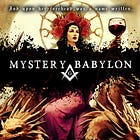
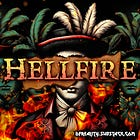
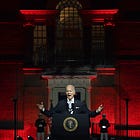
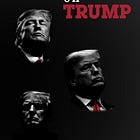
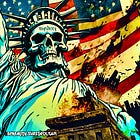
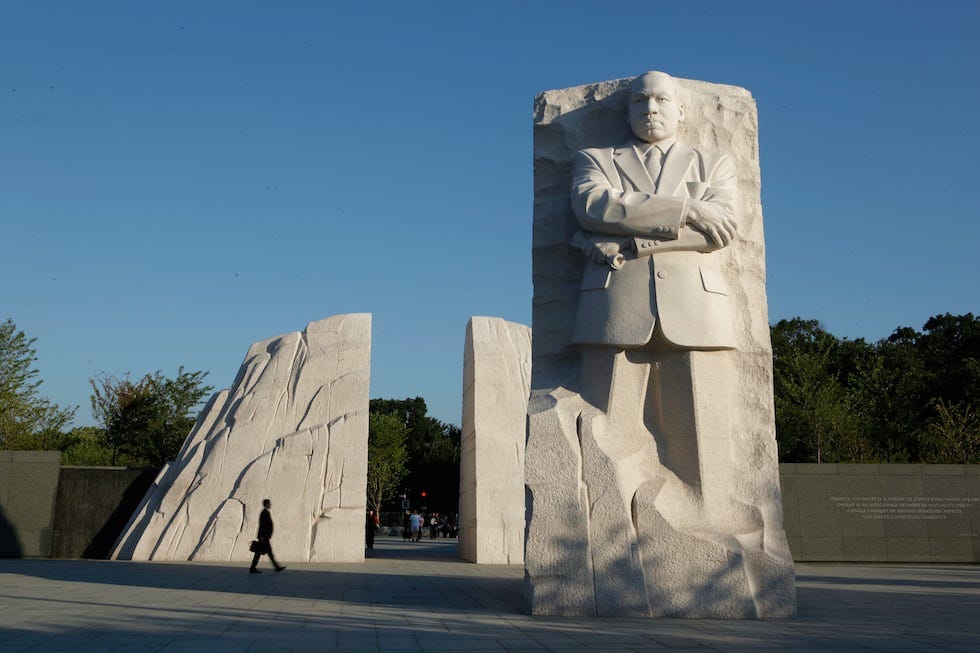
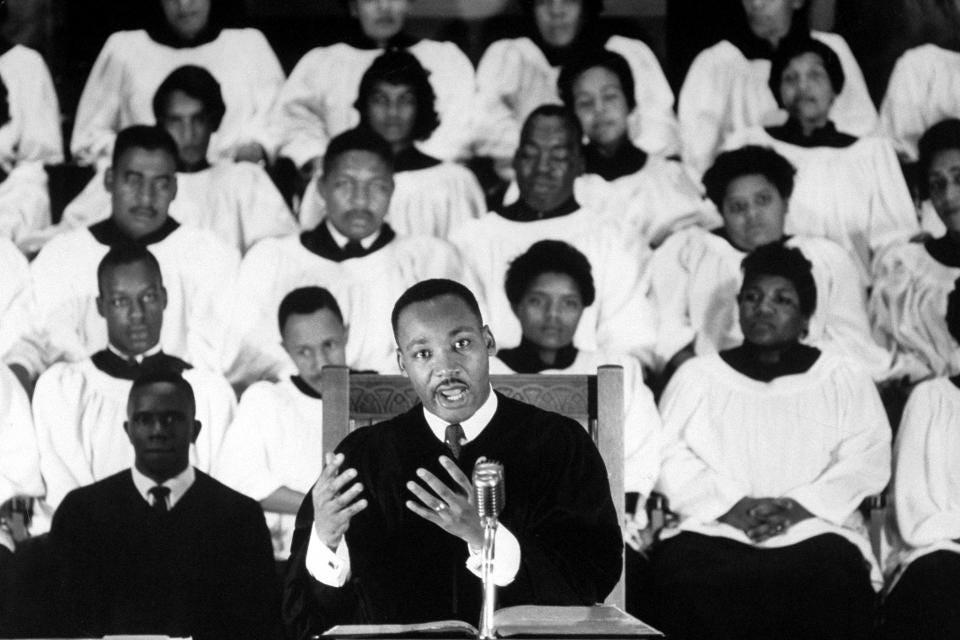
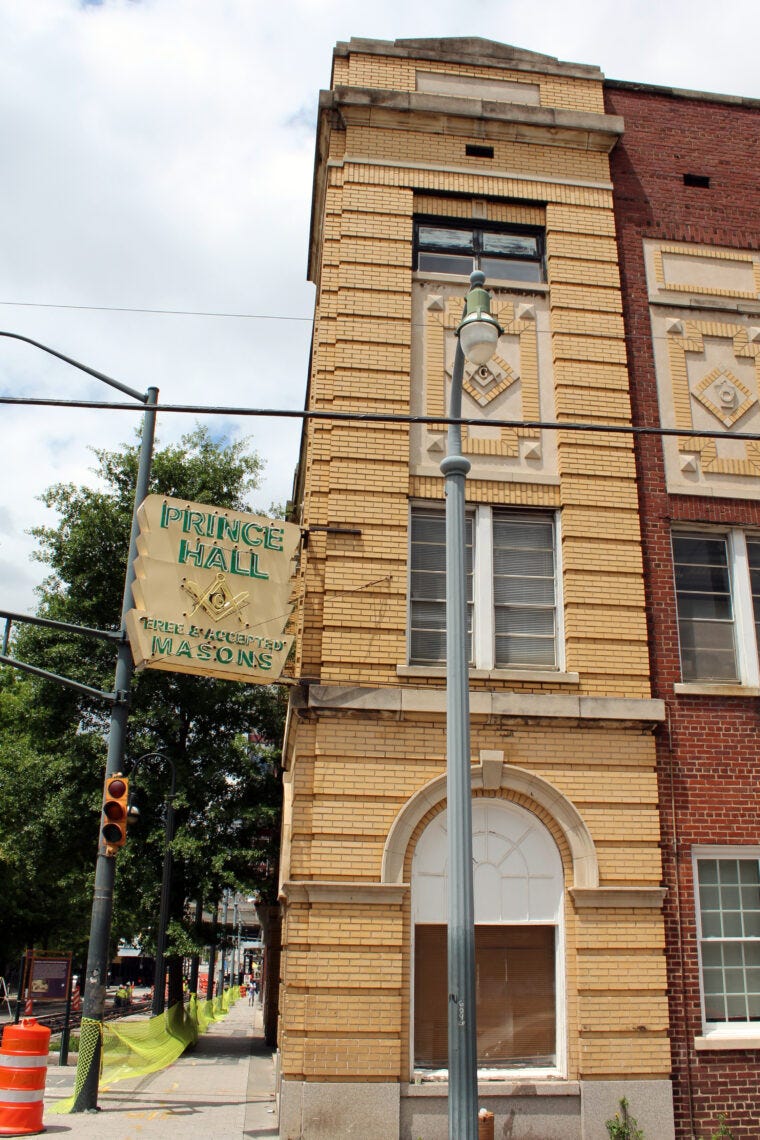
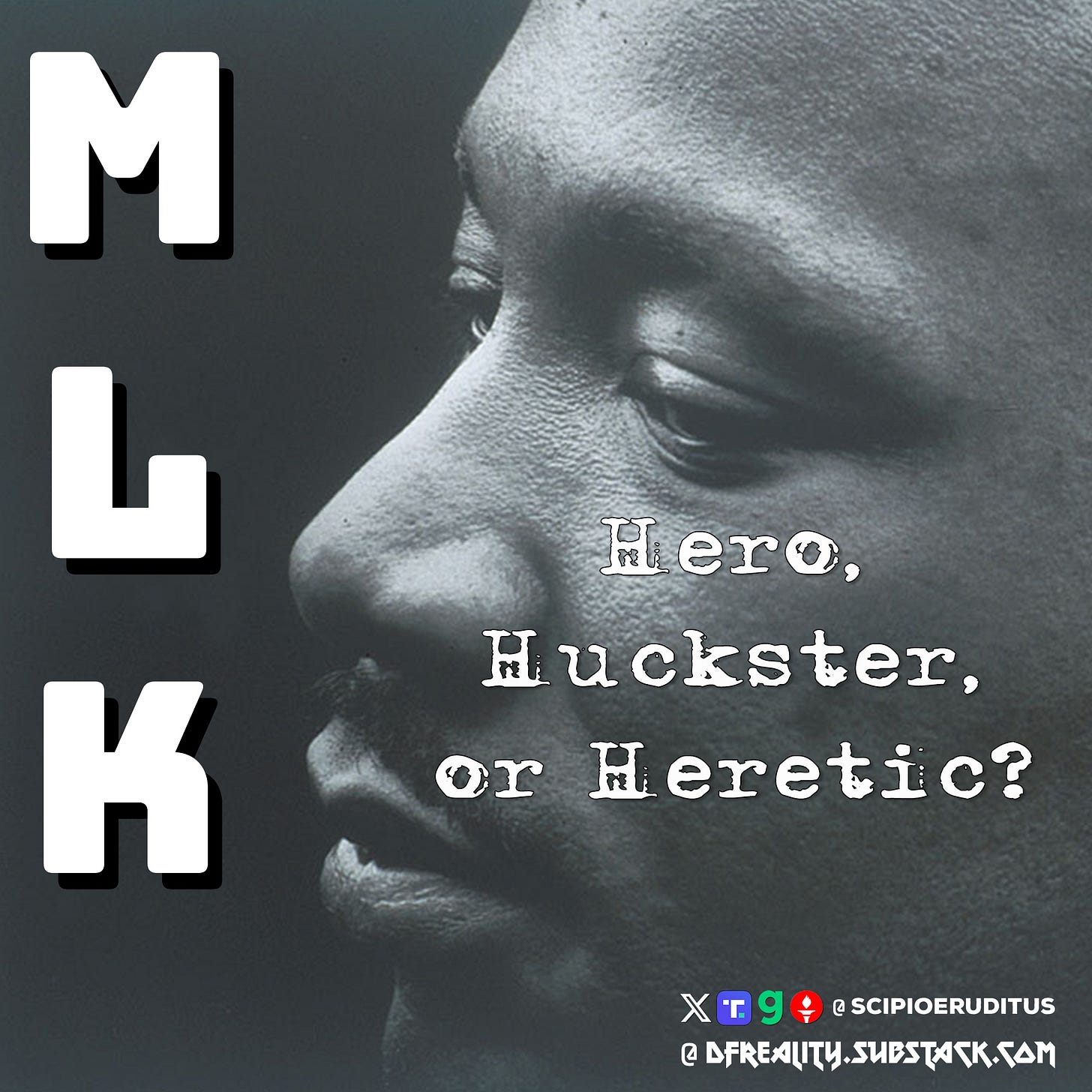
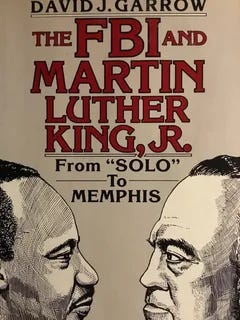
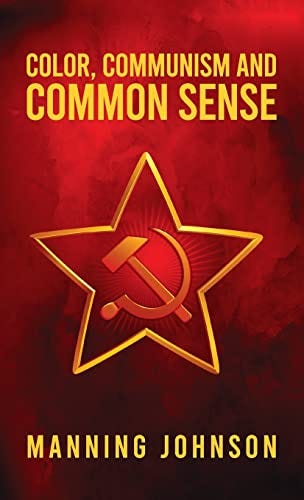
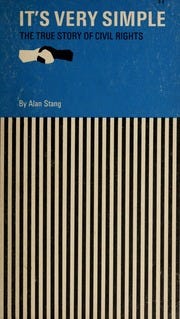
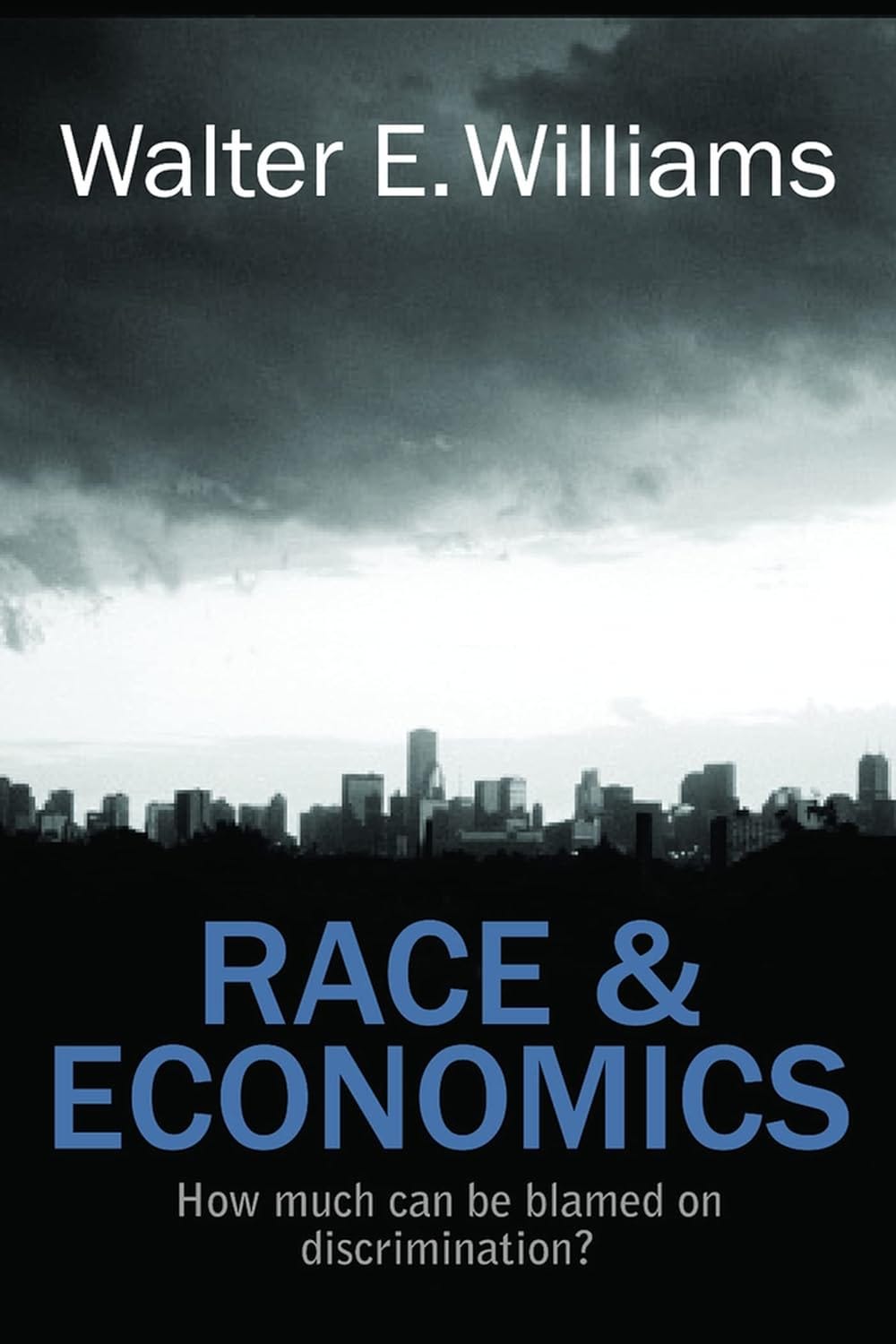
No different than Washington, Franklin, FDR, JFK, RFK, Bushes, Clinton, Trump, Obama, and just about any "hero" the US has fabricated over the 2.5 centuries of its short life.
someone commented the other day about the coincidence that mlk is the Hebrew word for sacrifice (and that no one refers to him as Martin King, it’s always MLK)
https://en.wikipedia.org/wiki/Moloch